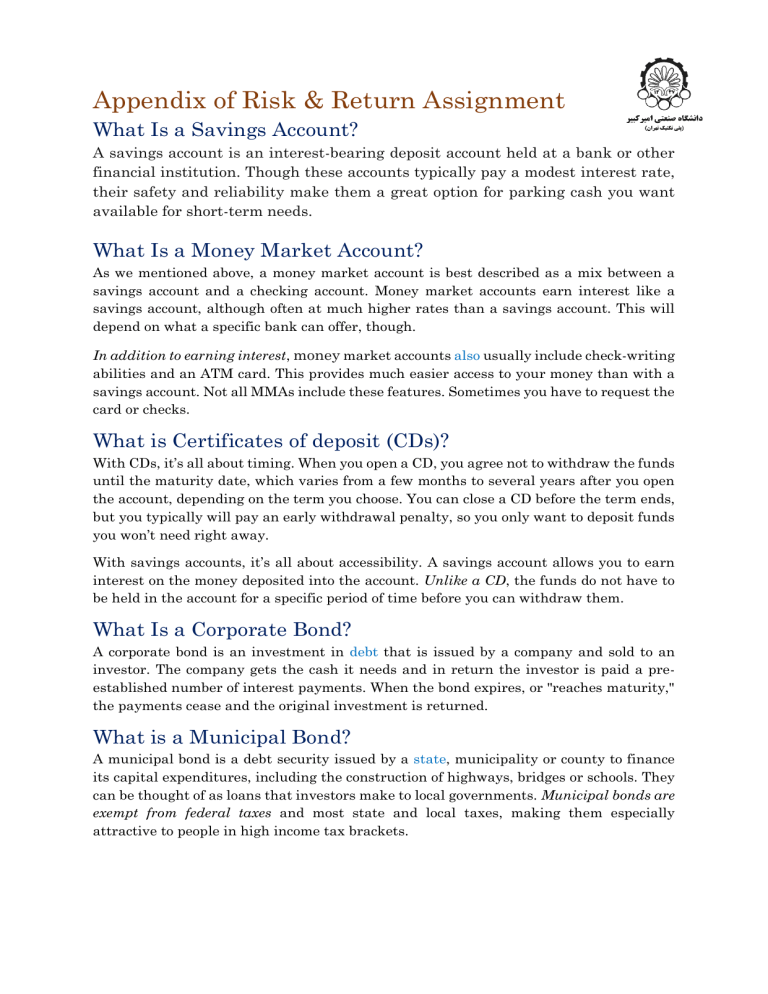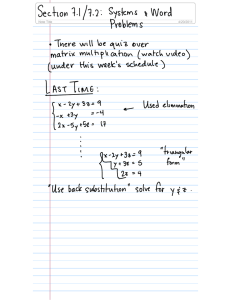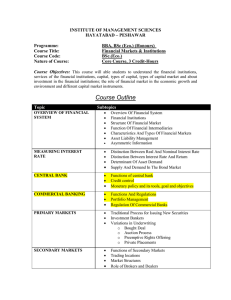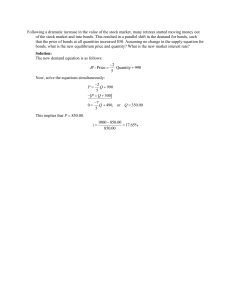
Appendix of Risk & Return Assignment What Is a Savings Account? A savings account is an interest-bearing deposit account held at a bank or other financial institution. Though these accounts typically pay a modest interest rate, their safety and reliability make them a great option for parking cash you want available for short-term needs. What Is a Money Market Account? As we mentioned above, a money market account is best described as a mix between a savings account and a checking account. Money market accounts earn interest like a savings account, although often at much higher rates than a savings account. This will depend on what a specific bank can offer, though. In addition to earning interest, money market accounts also usually include check-writing abilities and an ATM card. This provides much easier access to your money than with a savings account. Not all MMAs include these features. Sometimes you have to request the card or checks. What is Certificates of deposit (CDs)? With CDs, it’s all about timing. When you open a CD, you agree not to withdraw the funds until the maturity date, which varies from a few months to several years after you open the account, depending on the term you choose. You can close a CD before the term ends, but you typically will pay an early withdrawal penalty, so you only want to deposit funds you won’t need right away. With savings accounts, it’s all about accessibility. A savings account allows you to earn interest on the money deposited into the account. Unlike a CD, the funds do not have to be held in the account for a specific period of time before you can withdraw them. What Is a Corporate Bond? A corporate bond is an investment in debt that is issued by a company and sold to an investor. The company gets the cash it needs and in return the investor is paid a preestablished number of interest payments. When the bond expires, or "reaches maturity," the payments cease and the original investment is returned. What is a Municipal Bond? A municipal bond is a debt security issued by a state, municipality or county to finance its capital expenditures, including the construction of highways, bridges or schools. They can be thought of as loans that investors make to local governments. Municipal bonds are exempt from federal taxes and most state and local taxes, making them especially attractive to people in high income tax brackets. Savings Bond Basics The U.S. Department of the Treasury issues savings bonds as debt securities to fund the federal government's borrowing needs. Savings bonds are considered very low risk because the American government backs them. They are exempt from state and local taxes, and federal income taxes can be deferred until the bonds are cashed or stop paying interest. Savings bonds can be purchase in small increments, but municipal bonds require a larger investment. While savings bonds are available for as little as $50, muni bonds usually requires a minimum of $5,000. Though defaults are rare, municipals are vulnerable if local governments face economic trouble. Seek Municipal (muni) bonds with a high rating, but remember they are not considered as safe as federal savings bonds. While the value of savings bonds remains stable, the resale value of a muni bond can drop if it is no longer competitive with newer, higher yielding bonds. What is Treasury bonds, bills and notes? Treasury bills, notes, and bonds are fixed-income investments issued by the U.S. Department of the Treasury. They are the safest investments in the world since the U.S. government guarantees them. This low risk means they have the lowest interest rates of any fixed-income security. Treasury bills, notes, and bonds are also called "Treasurys" or "Treasury bonds" for short. What Is a Mutual Fund? A mutual fund is a type of financial vehicle made up of a pool of money collected from many investors to invest in securities like stocks, bonds, money market instruments, and other assets. Mutual funds are operated by professional money managers, who allocate the fund's assets and attempt to produce capital gains or income for the fund's investors. A mutual fund's portfolio is structured and maintained to match the investment objectives stated in its prospectus.



